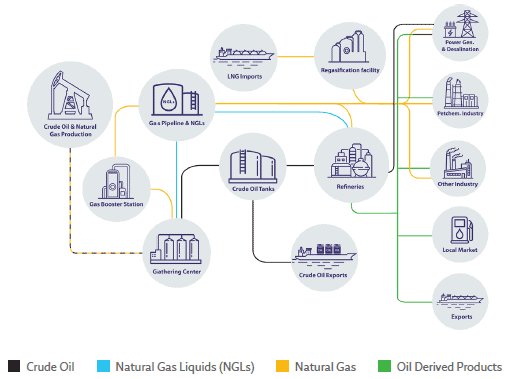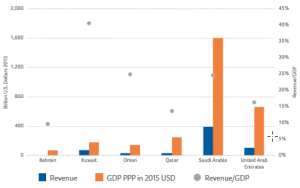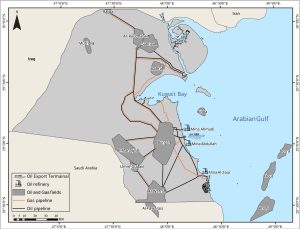Shaping the Future Energy Landscape

As Kuwait progresses toward its sustainable energy goal, with energy a national priority, the Kuwait Foundation for the Advancement of Sciences (KFAS) renews its commitment to advancing scientific research in the energy sector by strategically funding energy efficiency, and energy policy research.
Among the young figures driving such research is Yousef Al-Abdullah, a Research Scientist in the Renewable Energy Program at the Kuwait Institute for Scientific Research (KISR). His research delves into energy and power systems, alongside energy statistics, overseeing a team of researchers and associates engaged in projects such as the Kuwait Energy Outlook (KEO), as well as other projects in the field of energy and power systems. His latest work offers valuable insights into Kuwait’s energy landscape, emphasizing the indispensable role of scientific research in advancing this vital sector.

Kuwait ambitiously aims to achieve a sustainable energy future by fulfilling 15% of the projected electricity demand in 2030 through renewable sources. But this initiative goes beyond mere energy generation. Part of the plan is to develop energy efficiency policies as well. “We are identifying policies that fulfill the energy needs of different services/sectors while also decreasing energy use,” notes Al-Abdullah.
 Yet, significant challenges confront the path forward. “Availability of data is a key obstacle. Data in Kuwait originates from various stakeholders, resulting in a fragmented landscape” says Al-Abdullah. “Establishing a centralized unit to manage energy-related data acquisition is essential.” Tackling such hurdles is paramount to ensuring that research efforts remain informed and aligned with Kuwait’s developmental plans.
Yet, significant challenges confront the path forward. “Availability of data is a key obstacle. Data in Kuwait originates from various stakeholders, resulting in a fragmented landscape” says Al-Abdullah. “Establishing a centralized unit to manage energy-related data acquisition is essential.” Tackling such hurdles is paramount to ensuring that research efforts remain informed and aligned with Kuwait’s developmental plans.
The General Secretariat of the Supreme Council for Planning and Development (GSSCPD) is actively engaged in addressing these concerns, fostering research initiatives that harmonize with national strategies while bolstering Kuwait’s energy future. Furthermore, it aids in crafting decision-making tools to comprehensively assess the nation’s current energy landscape.
 Despite Kuwait’s commitment to sustainability, the current subsidies, while beneficial domestically, could potentially exacerbate global emissions burdens. Thus, Kuwait needs to demonstrate steadfast adherence to its sustainability pledges, navigating the intricate interplay between national priorities and international obligations.
Despite Kuwait’s commitment to sustainability, the current subsidies, while beneficial domestically, could potentially exacerbate global emissions burdens. Thus, Kuwait needs to demonstrate steadfast adherence to its sustainability pledges, navigating the intricate interplay between national priorities and international obligations.
“In Kuwait, clear aims, targets, and supportive policies will shape the future energy landscape,” says Al-Abdullah. “At KISR, we contribute to addressing these challenges by conducting research that informs decision-makers and the public about sustainable energy practices at large.”
In a region where energy dynamics shape geopolitical landscapes, Kuwait stands as a pioneer. “None of the other Gulf Cooperation Council (GCC) countries have undertaken a similar endeavor,” notes Al-Abdullah. “We are the first to develop a comprehensive national energy outlook in the region, empowering our nationals with the skills needed to navigate the intricacies of energy forecasting.”
وأشار العبدالله إلى حرص المعهد على تعزيز التعاونِ مع جهات بحثية عالمية، لدفع التقدم والابتكار في أبحاث الطاقة. ومن بين هذه الشراكات الجديرة بالذكر التعاونُ مع معهد أكسفورد لدراسات الطاقة(Oxford Institute for Energy Studies)، حيث كان لمنال الشهابي – وهي خبيرة اقتصادية تطبيقية متخصصة في الطاقة والاقتصاد والمناخ والاستدامة – دورٌ محوريٌّ في إعداد تقرير آفاق الطاقة في الكويت. بالإضافة إلى ذلك فإن التعاون مع تشارلي هيبس Charlie Heeps، مدير برنامج نمذجة الطاقة في معهد ستوكهولم للبيئة (Stockholm Environment InstituteAl-Abdullah emphasized KISR’s dedication to fostering global scientific engagement, driving progress and innovation in energy research. Noteworthy among these partnerships is the collaboration with the Oxford Institute for Energy Studies, where the expertise of Manal Shehabi, an applied economist specializing in energy, economics, climate, and sustainability, has played a central role in the development of the KEO. In addition, collaborations with Charlie Heaps, the Energy Modeling Program Director at the Stockholm Environment Institute, renowned for his work on Low Emissions Analysis Platform (LEAP), as well as the International Energy Agency (IEA), have further enriched the KEO with invaluable insights. These collaborations underscore KISR’s commitment to international scientific cooperation and its pursuit of cutting-edge research in the energy sector.
The KEO uncovered significant opportunities and challenges in sustainable energy development. One of the key prospects lies in the realm of renewable energy, where Kuwait has vast potential. Studies indicate that Kuwait’s power system could readily accommodate up to 60% renewables at present, with even greater capacity anticipated in the future. This trajectory is bolstered by emerging technologies like smart grid systems and advanced control mechanisms, which promise to further enhance renewable integration.
Moreover, energy efficiency emerges as a critical avenue for reducing overall energy demand. Initiatives such as the White Paper on District Cooling, spearheaded by KFAS, offer practical solutions for curbing electricity consumption. However, it’s important to recognize that energy demand encompasses more than just electricity; it extends to oil-based products, particularly in transportation. To address this, the KEO recommends prioritizing efficiency measures in sectors like transportation, where mass transit solutions present the most promising pathway. “Revisiting options such as a metro network and street-level tram systems,” says Al-Abdullah, “could significantly mitigate energy demand from transportation, aligning Kuwait with sustainable energy goals.”
“The KEO team is actively engaged in enhancing public outreach by organizing events and seminars to disseminate the outcomes. They acknowledge the need for further improvement in this area and plan to host more events in the future.
Al-Abdullah underscores the importance of KFAS’s backing for endeavors such as the Kuwait Energy Outlook 2023, underscoring the pivotal role of research in shaping this direction. This publication provides crucial perspectives on the country’s energy path. These undertakings establish the foundation for well-informed decision-making and strategic foresight. By sponsoring national researchers and hosting international expertise, KFAS provides Kuwait with an invaluable service, enabling the discovery of solutions to complex problems facing the nation.
In the energy sector, Kuwait stands at a crossroads—a juncture where scientific inquiry intersects with national aspirations. With enthusiastic researchers like Yousef Al-Abdullah leading the change, Kuwait is poised to navigate this landscape with confidence and determination.
بقلم: ماجد المنيفي Majed Al Munefi




